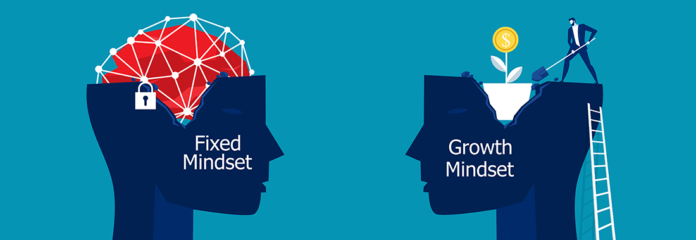In the fast-paced world, we live in today, cultivating a growth mindset in students has become essential. A growth mindset encourages students to embrace challenges, persist in facing setbacks, and believe in their ability to learn and grow. Visit ILearnUK.com to access a wealth of resources and ideas to cultivating a growth mindset in students, setting them up for lifelong success.
By fostering a growth mindset, educators can empower students to develop resilience, curiosity, and a love for learning. This article explores the importance of cultivating a growth mindset in students and provides practical strategies to achieve this goal.
Understanding the Concept of a Growth Mindset
A growth mindset, coined by psychologist Carol Dweck, refers to the belief that abilities and intelligence can be developed through dedication, hard work, and perseverance. Individuals with a growth mindset understand that learning, practicing, and embracing challenges can improve their talents and abilities. Transform your students’ learning experience. Discover the secrets to fostering a growth mindset at RakuRakuSchool.com and witness the remarkable impact on their motivation and achievement. They see failures as opportunities for growth and believe that their efforts can lead to greater achievements.
Benefits of Cultivating a Growth Mindset
Cultivating a growth mindset in students has numerous benefits. Firstly, it promotes a positive attitude towards learning, encouraging students to take on new challenges and explore unfamiliar territories. With a growth mindset, students are more likely to persevere through difficulties, develop problem-solving skills, and achieve academic success. Moreover, a growth mindset fosters resilience and a belief in one’s ability to overcome obstacles, which are crucial skills for navigating the complexities of life beyond the classroom.
Strategies to Foster a Growth Mindset in Students
Encouraging Effort and Embracing Challenges
Teachers can emphasize the value of effort and highlight that intelligence is not fixed but can be developed through hard work. Encouraging students to step out of their comfort zones, embrace challenges, and view mistakes as opportunities for growth helps cultivate a growth mindset.
Providing Constructive Feedback
Constructive feedback plays a vital role in fostering a growth mindset. Teachers should provide specific feedback that focuses on effort, progress, and areas for improvement. By highlighting strengths and offering guidance on overcoming weaknesses, students develop a sense of self-efficacy and a belief in their ability to grow.
Cultivating a Sense of Purpose
Connecting learning to real-life situations and demonstrating its relevance helps students develop a sense of purpose. When students understand the significance of their education and how it contributes to their personal growth and future aspirations, they are motivated to adopt a growth mindset.
Nurturing Curiosity and a Love for Learning
Encouraging curiosity and a love for learning create intrinsic motivation within students. Teachers can foster this by providing engaging and challenging learning opportunities, promoting inquiry-based learning, and exposing students to diverse perspectives and ideas.
Promoting Collaboration and Learning from Mistakes
Collaborative activities allow students to learn from one another and realize the power of collective intelligence. Creating a safe and supportive environment where mistakes are viewed as learning opportunities helps students develop resilience and bounce back from setbacks.
Role of Educators in Cultivating a Growth Mindset
Educators play a crucial role in cultivating a growth mindset in students. By implementing the strategies mentioned above, teachers can create an environment that supports and nurtures the development of a growth mindset. They can model a growth mindset, provide guidance and support, and create opportunities for students to reflect on their learning journeys.
Role of Parents in Nurturing a Growth Mindset
Parents also significantly influence nurturing a growth mindset in their children. They can encourage a love for learning, provide a supportive home environment, and praise effort and progress rather than solely focusing on achievements. By fostering a growth mindset at home, parents complement the efforts of educators in shaping a student’s mindset.
Overcoming Obstacles and Addressing Fixed Mindset Thinking
Overcoming fixed mindset thinking requires a combination of self-awareness, reflection, and intentional effort. Students can gradually shift towards a growth mindset by challenging negative beliefs, reframing failures as learning opportunities, and seeking support from educators and peers.
Cultivating a Growth Mindset Beyond the Classroom
Cultivating a growth mindset goes beyond the confines of the classroom. It involves creating a culture that values growth and continuous improvement in all areas of life. Individuals can cultivate a growth mindset that extends far beyond their academic journey by promoting lifelong learning, encouraging personal development, and embracing challenges.
Conclusion
Cultivating a growth mindset in students is an invaluable investment in their future. By fostering resilience, curiosity, and a belief in their ability to learn and grow, educators and parents empower students to overcome challenges and thrive in a rapidly evolving world. Through intentional strategies, supportive environments, and a commitment to lifelong learning, we can cultivate a generation of individuals with a growth mindset who will shape a brighter future. Break free from fixed thinking patterns! Visit EduCity1713.com and explore comprehensive collection of activities and lesson plans that will help you cultivate a growth mindset in your students.









